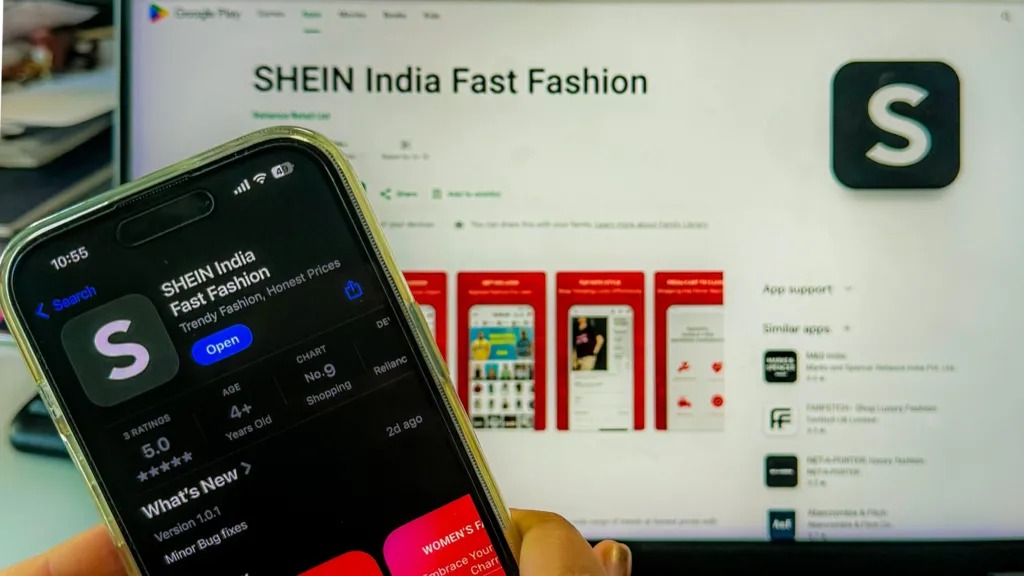
Shein’s Re-Entry to India: What You Need to Know
The Shein app relaunched on Friday night and has already garnered over 10,000 downloads on mobile platforms. For its initial rollout, Shein is delivering to customers in major urban centers, including Delhi, Mumbai, and Bengaluru, with plans for nationwide expansion in the coming months. Items on the platform start as low as 199 rupees ($2.30).
This partnership not only allows Shein to reestablish its presence in India but also aligns with Reliance Retail’s larger diversification strategy. Reliance, owned by billionaire Mukesh Ambani, is leveraging Shein’s global brand recognition while using local manufacturing to strengthen its supply chains. The collaboration will help Indian garment manufacturers expand operations and promote textile exports on a global scale, according to a Reliance official.
Before its ban, Shein was particularly popular with Indian consumers for offering trendy and affordable fashion options. The absence of Shein after 2020 created a vacuum in the Indian fashion e-commerce space, allowing local players to rise. However, experts believe Shein’s comeback could pose a stiff challenge to domestic brands and even international competitors operating through platforms like Ajio, Flipkart, and Amazon.
How Reliance Retail and Shein Are Partnering
The licensing deal gives Reliance full operational and data control for Shein in India. Shein will focus on providing its technological expertise, while Reliance will oversee product manufacturing and distribution. Unlike before, the Shein app will comply with strict Indian data regulations, ensuring that all user data is stored locally and not accessible by its Chinese parent company.
Commerce Minister Piyush Goyal has emphasized that the relaunch meets all the conditions imposed by India’s data protection policies. Additionally, Shein will use Indian manufacturing units as a hub to export textiles globally, creating opportunities for local garment producers. This move supports India’s “Make in India” initiative, a campaign aimed at boosting domestic manufacturing.
The Context: India’s Ban on Chinese Apps
Shein’s return marks a rare exception to India’s ban on more than 200 Chinese apps over the past five years. The ban included major apps like ByteDance’s TikTok and Tencent’s PUBG, both of which were accused of transmitting user data without authorization. PUBG eventually rebranded and relaunched under the name “Battlegrounds Mobile India” through Krafton India to comply with local regulations.
The ban stemmed from growing tensions between the two nations over national security concerns and escalating border conflicts. Indian authorities have maintained that these measures were necessary to protect citizens’ data and uphold digital sovereignty.
The Future of Shein India
Shein returns to India with a different business model under Reliance Retail. With its re-entry, the focus lies on promoting affordable fashion while prioritizing strict compliance with Indian regulations. The partnership could be a game-changer for the Indian e-commerce landscape, particularly in the fast fashion segment.
As Shein carefully builds its presence in India, leveraging Reliance’s supply chain and customer base, it will be interesting to see how local and global competitors respond to this revived competition.
External Link :
Read more about global business on BBC
Internal Link :
Learn more about e-commerce partnerships in India





